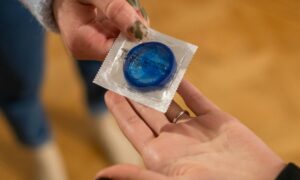Sleep aid for kids:
Melatonin supplements are commonly used as sleep aids for kids. Always consult a pediatrician before giving any sleep aid to children.
Sleep is vital for children’s growth and development. Many parents struggle with their children’s bedtime routines. Establishing a consistent sleep schedule helps promote better sleep habits. Creating a calming bedtime environment can also aid in better sleep. Avoid screens and stimulating activities before bed.
Warm baths, bedtime stories, or gentle music can help children relax. Healthy sleep patterns contribute to overall well-being and cognitive development. Consult a healthcare professional for personalized advice on sleep aids. Remember, a good night’s sleep is crucial for your child’s health and happiness.
Natural Sleep Aids
Every parent knows the struggle of getting their kids to sleep. Finding the right sleep aid can be tricky. Many parents prefer natural sleep aids over synthetic options. These remedies are gentle and have fewer side effects. Here, we explore some natural solutions that can help your child sleep better.
Herbal Remedies
Herbal remedies have been used for centuries to promote sleep. They are safe and effective for children. Here are some popular herbal remedies:
- Chamomile Tea: Chamomile has calming effects. A warm cup before bed can soothe your child.
- Lavender: Lavender can relax and calm the mind. You can use it as a tea or add it to a bedtime bath.
- Valerian Root: Valerian is another herb that promotes sleep. It’s available in teas and supplements.
These herbs are available in various forms. You can find them as teas, extracts, or capsules. Some kids may prefer one form over another. It’s essential to choose the one your child likes.
| Herb | Form | Benefit |
|---|---|---|
| Chamomile | Tea | Calming and soothing |
| Lavender | Tea, Bath | Relaxing |
| Valerian Root | Tea, Capsules | Promotes sleep |
Essential Oils
Essential oils are another natural way to help kids sleep. They are concentrated plant extracts. These oils can be used in various ways to aid sleep:
- Diffusers: Add a few drops of essential oil to a diffuser. Let it fill the room with a calming scent.
- Baths: Add essential oils to your child’s bath. This can relax their body and mind.
- Pillow Sprays: Spray diluted essential oil onto your child’s pillow. They will breathe in the calming scent as they sleep.
Some popular essential oils for sleep include:
- Lavender Oil: Known for its calming properties.
- Roman Chamomile Oil: Helps to soothe and relax.
- Cedarwood Oil: Promotes a sense of peace.
Using essential oils is simple. Ensure you dilute them properly to avoid skin irritation. Always use high-quality oils for the best results.

Credit: http://www.zzzquil.com
Sleep Hygiene Practices
Getting kids to sleep can be challenging. Sleep hygiene practices can help make bedtime easier. Good sleep is important for a child’s growth and development. In this blog post, we will discuss two key aspects of sleep hygiene: a bedtime routine and the sleep environment.
Bedtime Routine
Creating a consistent bedtime routine helps signal to your child that it’s time to sleep. Here are some steps to include in the routine:
- Set a regular bedtime: Go to bed at the same time every night.
- Wind-down activities: Include quiet activities like reading a book or taking a warm bath.
- Limit screen time: Turn off screens at least an hour before bed.
- Brush teeth: Ensure your child brushes their teeth before bed.
- Comfort items: Allow your child to have a favorite toy or blanket.
Here is an example of a bedtime routine schedule:
| Time | Activity |
|---|---|
| 7:00 PM | Warm bath |
| 7:20 PM | Put on pajamas |
| 7:30 PM | Read a story |
| 7:50 PM | Brush teeth |
| 8:00 PM | Lights out |
Sticking to a routine helps your child feel secure and know what to expect each night. This can lead to better sleep.
Sleep Environment
Creating a calm and comfortable sleep environment is crucial. Here are some tips:
- Darkroom: Use blackout curtains to keep the room dark.
- Cool temperature: Keep the room cool, around 65°F (18°C).
- Quiet: Use white noise if necessary to block out other sounds.
- Comfortable bedding: Ensure the mattress and pillows are comfortable.
- No distractions: Keep toys and electronics out of the bed.
Lighting is also important. Consider using a night light if your child is afraid of the dark. Choose a light with a warm tone as it is less disruptive to sleep.
Safety is key. Remove any objects that could be harmful from the sleeping area. Make sure the bed is safe and the child cannot fall out.
Personalize the space. Let your child choose their bedding, such as sheets with their favorite characters. This can make the bed feel like a special place just for them.
By creating a comfortable and safe sleep environment, you help your child feel more relaxed and ready for sleep.
Technology And Sleep
Good sleep is essential for kids. Technology can both help and hinder sleep. Understanding how to use technology wisely can help kids sleep better. This section explores how technology affects children’s sleep and offers tips on using it effectively.
Screen Time Limits
Too much screen time can affect kids’ sleep. Setting screen time limits is crucial. Here are some tips to manage screen time:
- Limit screen use to one hour before bedtime.
- Encourage kids to read books instead of using screens.
- Set a digital curfew for devices.
Creating a schedule can help. Here’s a sample schedule for a typical evening:
| Time | Activity |
|---|---|
| 6:00 PM | Dinner |
| 7:00 PM | Homework |
| 8:00 PM | Screen Time |
| 9:00 PM | Reading |
| 9:30 PM | Bedtime Routine |
Consistency is key. Stick to the schedule every day. This helps the body get used to a routine. Avoid violent or exciting content before bed. It can make it harder to fall asleep.
Sleep Apps
Sleep apps can be helpful. They offer relaxing sounds and bedtime stories. Here are some features to look for in a sleep app:
- White noise and nature sounds.
- Guided meditations for kids.
- Bedtime stories are narrated softly.
Here are some popular sleep apps for kids:
| App Name | Features |
|---|---|
| Calm Kids | Stories, meditations, and music. |
| Moshi | Sleep stories and relaxing sounds. |
| Headspace for Kids | Guided meditations and breathing exercises. |
Using sleep apps can create a calm atmosphere. Set the volume low to avoid waking them up. Place the device away from the bed to reduce distractions. Test different apps to find the best fit for your child.

Credit: http://www.amazon.com
Diet And Sleep
Getting a good night’s sleep is crucial for children’s growth and development. Diet plays a significant role in promoting healthy sleep patterns. Certain foods can help kids relax and sleep better, while others can disrupt their sleep. Let’s explore how diet impacts sleep and how you can help your child get the rest they need.
Foods To Promote Sleep
Some foods contain nutrients that can help children fall asleep faster and stay asleep longer. Here are some excellent options:
- Bananas: Rich in magnesium and potassium, bananas help relax muscles and promote sleep.
- Oatmeal: Contains melatonin, a hormone that regulates sleep-wake cycles.
- Turkey: High in tryptophan, an amino acid that helps produce serotonin and melatonin.
- Cherries: One of the few natural sources of melatonin.
- Warm Milk: Contains tryptophan and calcium, which help the brain use tryptophan effectively.
Here’s a quick table summarizing these sleep-friendly foods:
| Food | Key Nutrient | Benefit |
|---|---|---|
| Bananas | Magnesium, Potassium | Relaxes muscles |
| Oatmeal | Melatonin | Regulates sleep-wake cycles |
| Turkey | Tryptophan | Produces serotonin and melatonin |
| Cherries | Melatonin | Natural sleep aid |
| Warm Milk | Tryptophan, Calcium | Helps brain use tryptophan |
Including these foods in your child’s evening meals or snacks can help them relax and prepare for bedtime.
Avoiding Stimulants
Stimulants can disrupt children’s sleep patterns. Here are some common stimulants to avoid:
- Caffeine: Found in soda, chocolate, and certain medicines. It can keep kids awake and restless.
- Sugar: High sugar intake can cause energy spikes and crashes, making it hard to fall asleep.
- Spicy Foods: Can cause indigestion and discomfort, disrupting sleep.
It’s essential to limit these foods and drinks, especially in the evening. Here’s a table outlining stimulants and their effects:
| Stimulant | Common Sources | Effect on Sleep |
|---|---|---|
| Caffeine | Soda, Chocolate, Medicines | Keeps kids awake |
| Sugar | Candy, Desserts, Sweet Drinks | Energy spikes and crashes |
| Spicy Foods | Spicy Snacks, Meals | Causes indigestion |
Creating a balanced diet that promotes sleep while avoiding stimulants can help your child enjoy a restful night.
When To Seek Help
Helping your child get a good night’s sleep can be challenging. Sometimes, despite your best efforts, your child may still struggle to sleep. Knowing when to seek help is crucial. Understanding the signs of sleep disorders and consulting a professional can make a big difference in your child’s well-being.
Signs Of Sleep Disorders
Identifying sleep disorders in children is the first step. Some signs are more obvious than others. Here are some common indicators to watch for:
- Difficulty falling asleep: It takes more than 30 minutes to doze off.
- Frequent night awakenings: Wakes up multiple times during the night.
- Nightmares or night terrors: Regularly experience scary dreams or sudden fear episodes.
- Snoring or breathing difficulties: Loud snoring or pauses in breathing.
- Daytime sleepiness: Excessive tiredness during the day, even after a full night’s sleep.
- Behavioral issues: Increased irritability, hyperactivity, or difficulty concentrating.
These signs can vary in severity. It’s essential to monitor your child’s sleep patterns and note any changes. Keeping a sleep diary can help track these issues. Record bedtime routines, the time it takes to fall asleep, night awakenings, and overall sleep quality. This information can be invaluable when discussing concerns with a healthcare professional.
Consulting A Professional
If your child exhibits any of the signs mentioned, it may be time to consult a professional. Seeking help early can prevent long-term issues. Here’s how to approach this:
- Talk to your pediatrician: Start with a visit to your child’s doctor. They can rule out any medical conditions.
- Get a referral: Your pediatrician may refer you to a sleep specialist or a child psychologist.
- Prepare for the appointment: Bring your sleep diary and any relevant information. This helps the specialist understand your child’s sleep patterns.
During the consultation, the professional may suggest various tests. These could include sleep studies or overnight monitoring. Based on the findings, they might recommend treatments such as:
- Behavioral therapy: Techniques to improve sleep habits.
- Medication: In some cases, medication may be necessary.
- Lifestyle changes: Adjustments to diet, exercise, and bedtime routines.
Professional guidance can provide tailored solutions. Addressing sleep issues early can significantly improve your child’s quality of life. Don’t hesitate to seek help if you notice persistent sleep problems.
Frequently Asked Questions
What Can I Give My Child To Help Them Sleep?
Offer a consistent bedtime routine. Ensure a quiet, dark room. Give a warm bath and read a story. Avoid screens before bed. Consult a pediatrician for persistent issues.
What Is The Best Sleeping Drug For Kids?
Consult a pediatrician before giving any sleep medication to kids. Melatonin is often recommended but must be used under medical supervision.
What Is The Most Effective Natural Sleep Aid For Kids?
The most effective natural sleep aid for kids is establishing a consistent bedtime routine. Include calming activities like reading. Limit screen time before bed. Ensure the bedroom is quiet and comfortable. Herbal teas like chamomile can also help. Always consult with a pediatrician before trying new remedies.
Is There An Alternative To Melatonin For Kids?
Yes, alternatives include establishing a bedtime routine, using white noise, or trying natural remedies like chamomile tea. Always consult a pediatrician.
What Are Natural Sleep Aids For Kids?
Natural sleep aids include chamomile tea, lavender essential oil, and a consistent bedtime routine.
Conclusion
Ensuring your child gets quality sleep is crucial for their development. Explore various sleep aids and techniques to find what works best. Remember, consistency and a calming bedtime routine can make a big difference. Prioritize sleep to help your child thrive both mentally and physically.
A well-rested child is a happy child.





















